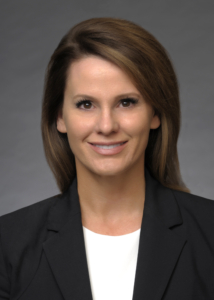 No two companies are exactly the same, so why would you implement a similar system as other businesses?
No two companies are exactly the same, so why would you implement a similar system as other businesses?
Every company has its own unique set of goals, procedures, and challenges, not to mention a team of employees hired specifically to help execute tasks for that particular organization. So, it only makes sense to put a system in place that is designed specifically for your company and no one else’s.
However, one of the biggest challenges an executive will face is finding the time to create an organization-wide management system. But think of it this way: implementing a system that is not only functional, but also bullet-proof will save you time and energy in the future and will give both you and your employees a point of reference whenever a challenge arises that needs to be addressed.
Before we move ahead with how to put a system in place, let’s first look at what exactly a system is. Generally speaking, a system is a method for solving issues and challenges that are specific to a particular business in a strategic and effortless fashion. One of the biggest perks of having a system in place is that, in time, you’ll have step-by-step reference points that you and your employees can refer back to, making the execution of different tasks a seamless and painless process.
Just like in life, where you have an order of things you need to do every morning before you can leave for work, having a system in place at your organization makes it that much easier to move seamlessly from task to task, thus allowing you and your staff the time and energy to tackle bigger things.
There are a variety of things that can be systemized at a business. Some examples include, implementing a communication system; creating a system for hiring new employees; and creating a scheduling system for meetings, tasks, and deadlines. But before you put a system in place, it’s important to figure out what issues need tackling first.
For example, perhaps in-house business meetings need to be streamlined within your company. To make the most of your meeting time, there should be a system in place for scheduling meetings, a plan for taking notes during the meeting, and an actionable protocol for following up and executing items that you and your team discussed during the meeting. Or maybe your team members are struggling with the best way to communicate with one another. Thanks to technology, there is an endless array of tools to choose from, such as email, text messaging, and implementing a 10-minute huddle with your team every morning to touch base on what projects everyone is working on that day. Whatever you implement, keep in mind your company culture. One plan may work seamlessly for a certain group of employees, while not so well for a different group.
As you plan out your system, take into account each step that should be addressed. For example, say you want to create a new meeting system for your company. One step would be deciding what kind of platform should be used for scheduling meetings. Other steps would include addressing who would be responsible for organizing meetings, who should take the minutes during the meeting, and what tasks need to be executed after the meeting is finished.
Once you have a vision of what kind of system you want to put into place and you’ve worked out many of the kinks to ensure that it’s an actionable system that will work for your specific company, share your plan with your staff. The only way your system will work is to make sure that everyone is on board and understands the process and procedures related to the system. It’s also a good way to receive feedback from employees. If anything, they might find areas of improvement in the way that day-to-day operations take place that you might have overlooked. Seeking their feedback is also a good way of making them feel involved and will make them more likely to abide by the system moving forward.
Even though there is some footwork involved in planning out your fit-for-purpose system, remember that the hardest part is creating it and implementing it. Once you pass that hurdle, your system will help address issues as they arise and give you a roadmap of how to navigate them. Remember, having a system is one of the best investments that you can make as a business leader.
Tabitha Laser is a multi-faceted professional with over 25 years of leadership experience in a variety of industries ranging from oil and gas, energy, manufacturing, agriculture, construction and more. Her diverse background has provided her opportunities to work with government agencies and some of the world’s largest companies, including Fortune 500 companies, BP, 3M, and General Mills. Her expertise has fueled her passion to help shape the next generation of leaders, especially millennials, to help avoid the pitfalls of their predecessors and lead beyond best. Tabitha is the author of Organization Culture Killers. The first book in a series of leadership books she calls, “The Deadly Practices.” Follow Tabitha.
The opinions and views expressed by guest contributors are their own and do not necessarily reflect those of theglasshammer.com


 Before starting her career, Sarah Zilenovski had always believed you had to choose your area of expertise while still in college; while in reality, as she found you can build your path as you go.
Before starting her career, Sarah Zilenovski had always believed you had to choose your area of expertise while still in college; while in reality, as she found you can build your path as you go.